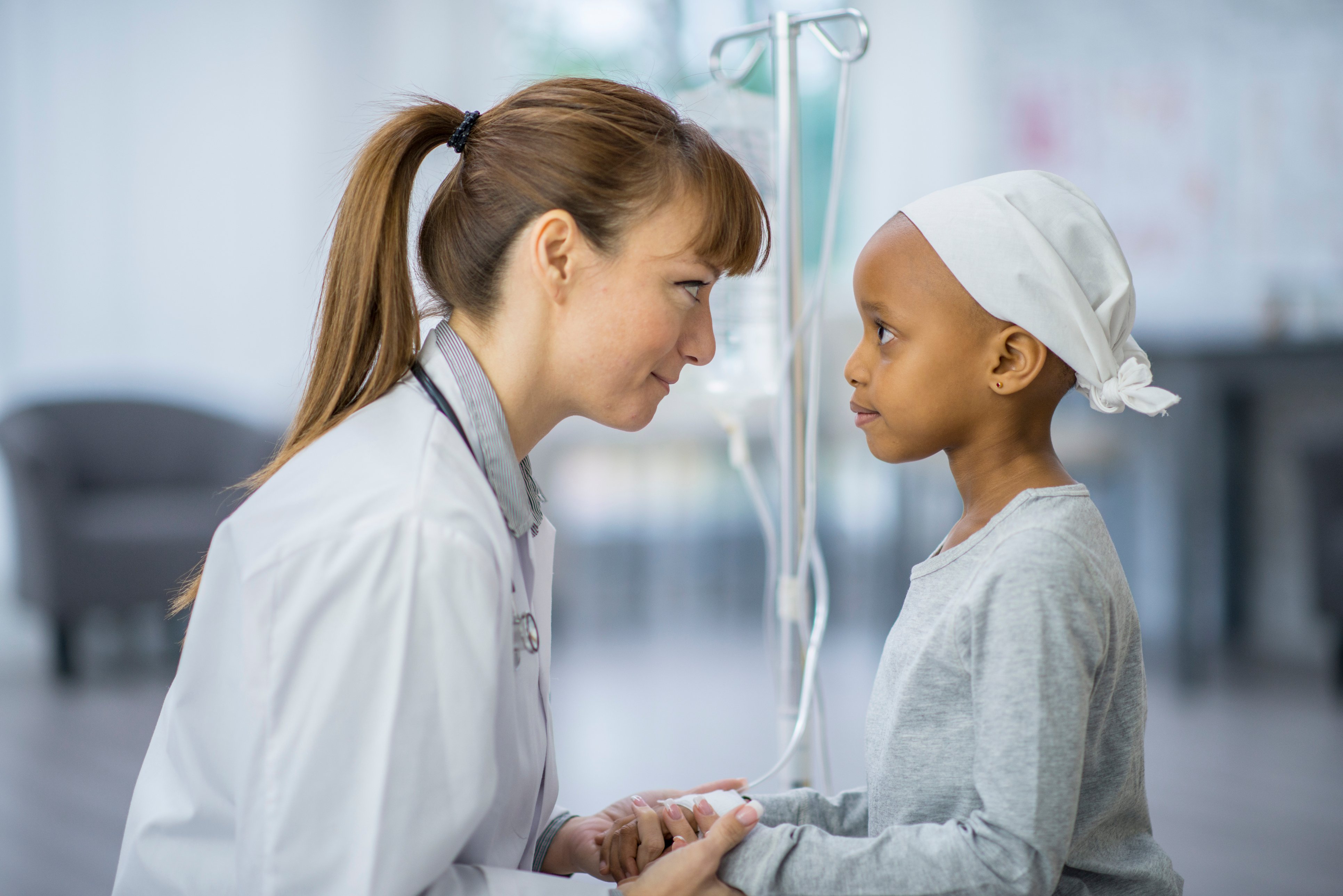Good nutrition is an important part of your child’s leukemia therapy. While your child is being treated for leukemia, your child’s height and weight will be regularly checked and compared to the growth of other children the same age. This helps your child’s health care team make the best decisions when it comes to your child’s nutritional needs.
Nutritious food provides fuel for our bodies to repair and replace damaged cells. If your child is well-nourished, they will:
- tolerate treatment better
- likely have fewer side-effects
- maintain and gain weight
- recover faster from treatment
- have more energy
To help your child eat well during treatment, include foods from the four food groups every day. Please refer to Canada’s Food Guide recommendations.
Nutritional side-effects of chemotherapy
The side-effects of treatment vary. Not all children will have difficulty eating. If your child has difficulty eating, read the tips outlined below.
Nausea and vomiting
It is common for children to feel nauseous or vomit while taking the chemotherapy medication. If your child continues to feel nauseous or vomit, your child’s doctor can prescribe medicines to help.
If your child is feeling nauseous, they should avoid lying flat on their back after eating. This can make the nausea worse. Instead, tell them to sit down or lie down with their head elevated.
Eating and avoiding certain foods can also help reduce these side effects. Your child can:
- Eat small, frequent meals.
- Eat dry crackers or toast, especially before moving, such as getting out of bed.
- Eat cold foods, because these tend to smell less (some children become sensitive to food smells during treatment)
- Eat low-fat foods such as cooked vegetables, canned fruit, baked skinless chicken, sherbet, fruit ice, popsicles, jello, pretzels, toast, crackers, and vanilla wafers.
- Drink clear, cool drinks such as carbonated drinks, flavoured jello, popsicles, and frozen cubes made of a favourite juice.
- Sip liquids slowly through a straw.
- Sip or drink small amounts of liquid often throughout the day.
- Make sure food trays are covered to avoid being overwhelmed by the smell.
- Avoid eating spicy, overly sweet, high-fat, or strong-smelling foods until the nausea goes away.
- Avoid drinking hot liquids or a lot of liquids with meals, as these can also trigger nausea.
- You may want to avoid your child’s favourite foods during this time – choose plainer foods instead.
Sometimes after your child has started chemotherapy, other side effects may begin to emerge, such as:
- a decrease in white blood cell count, making your child prone to infection
- loss of appetite
- diarrhea
- constipation
- mouth sores, which can get in the way of eating
- change in taste preferences or dislike of certain foods
- weight gain or loss.
Your child might not want to have their favourite foods any more. Although it can be frustrating, it is important to remember to have a relaxed attitude when it comes to your child’s eating.
Weight loss
The side effects of chemotherapy can cause your child to lose weight during treatment. If your child is losing weight, try to make every bite count. Choose high-calorie, high-protein foods, and offer several small meals throughout the day. Avoid low-calorie foods like clear soup broth, tea, and juice which can fill up the stomach with empty calories.
Constipation
Some chemotherapy medicines can cause constipation. If your child is constipated try:
- giving more liquids to drink
- spending extended relaxed time on the toilet
- offering high-fibre foods such as whole grains, fruits, vegetables, lentils and beans
- encouraging more activity (if your child is able)
- PEG flakes may be recommended by your health care team
How can you help your child eat healthy?
At home, you may be dealing with common problems such as nausea, increased or decreased appetite, and changes to taste. To make sure your child is eating well, focus on how well they eat. What your child is eating is more important than how much they eat.
Always keep your child’s health care team informed about how your child is eating. The dietitian at the hospital can help you during times when your child is having difficulty eating.
Try to offer nutritious food to your child in a positive and enjoyable environment. Reward your child’s efforts for good eating behaviour. If mealtimes are becoming difficult or stressful, please talk to your healthcare team, who can help.
While nutrition is important, don’t be afraid to let your child eat "kid-type foods." Allow dessert and sweets when appropriate. Also, keep healthy snacks available such as yogurt, cheese, fruit, and vegetables.
Coping with weight gain from steroids
If your child has acute lymphoblastic leukemia (ALL), they may be taking a steroid drug called prednisone or dexamethasone. This medicine increases the appetite. Some ways you can help your child maintain a healthy weight include:
- Give your child smaller portions sizes, instead of completely cutting out certain foods
- Try low-calorie substitutes, such as skim milk instead of whole milk
- Cook food in healthy ways. Baking, steaming, and boiling are healthier than frying
- Avoid snack foods high in fat and sugar
- Minimize juice/pop intake
- Limit take-out food due to high calorie and high fat content
Food safety: keeping germs out of your child's food
During treatment, your child’s white blood count may fall, weakening their immune system. It is important to make sure the food your child eats is prepared and stored well. Some things to keep in mind include:
- Making sure to wash hands before and after handling food
- Use hot, soapy water to clean surfaces and dishes that you use to prepare raw meat, fish, and eggs
- Put foods that can spoil easily in the fridge within two hours of serving. This includes foods such as milk, eggs, yogurt, cooked and raw meats, and mayonnaise
- When in doubt, “throw it out.”

